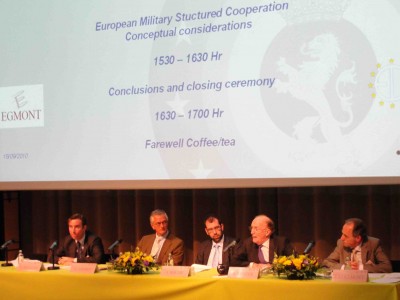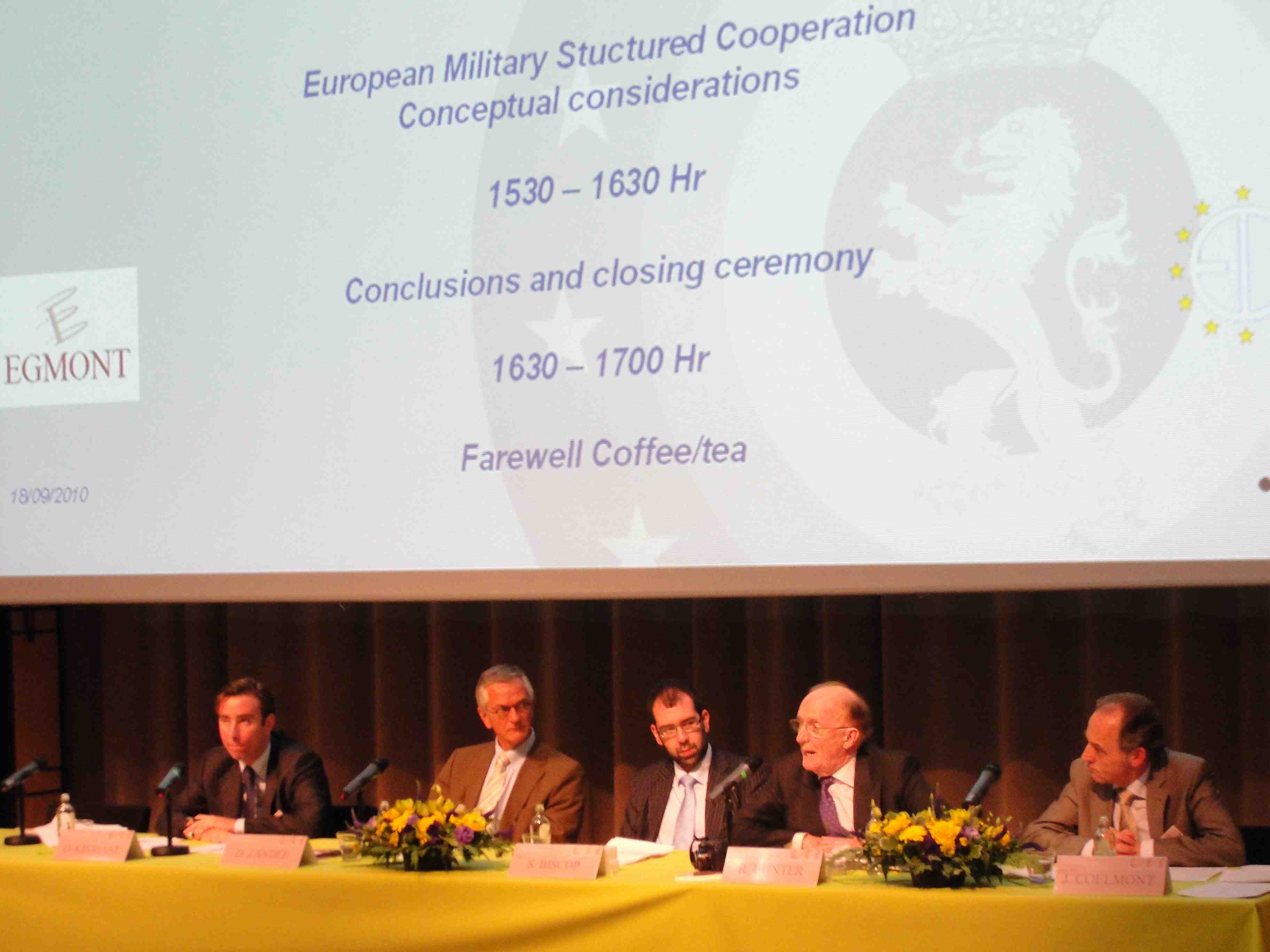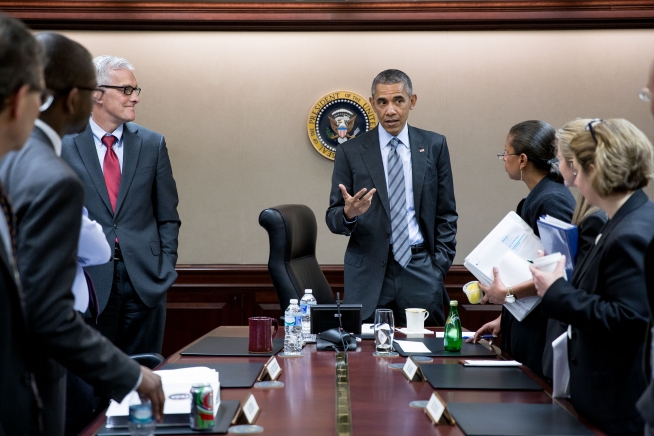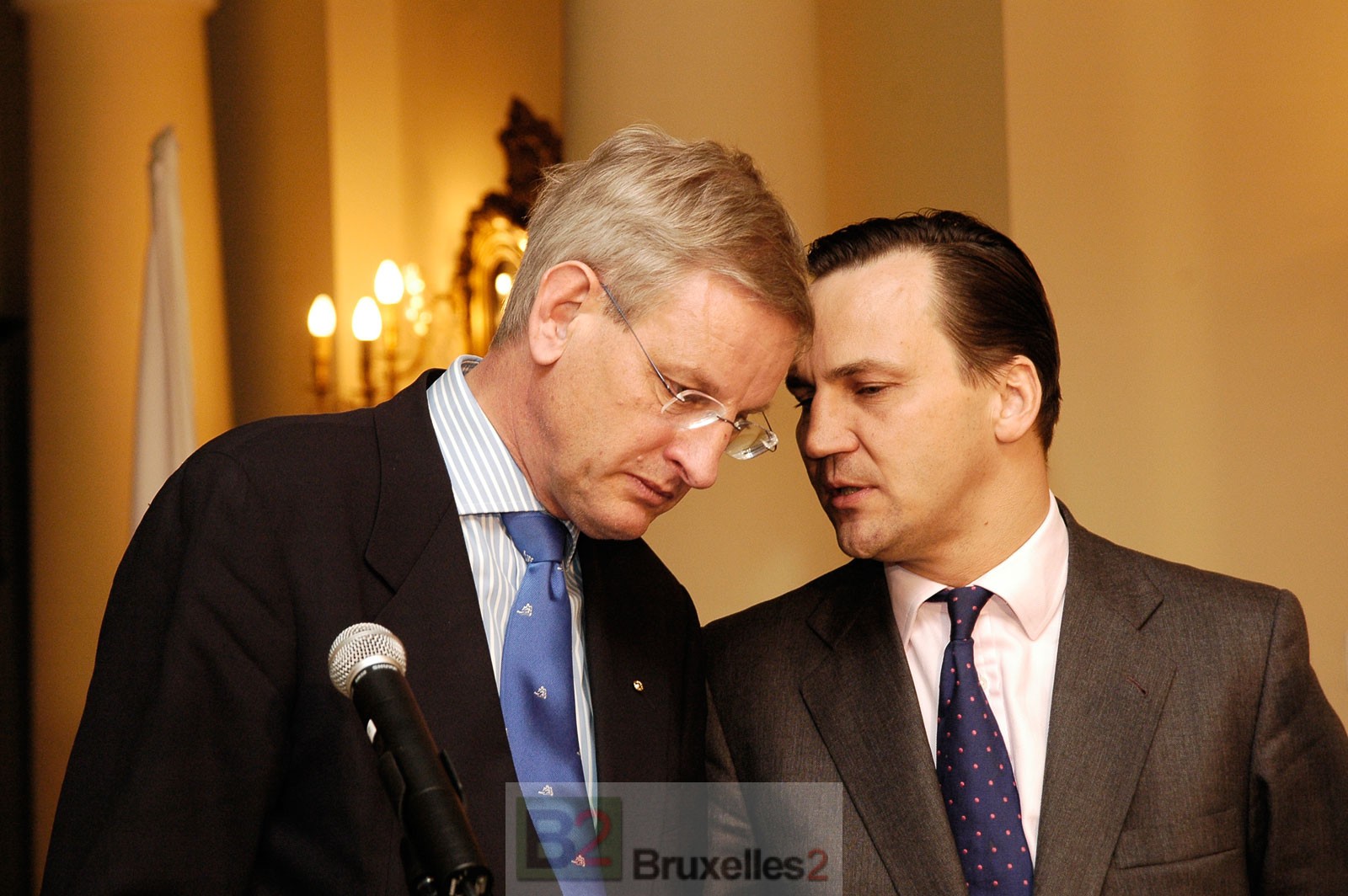The only permanent structured cooperation: the European army?

(BRUSSELS2) (opinion) Devoted to permanent structured cooperation, the Brussels Defense Debate, organized by the Belgian Presidency of the EU this Saturday, showed the impasse in which permanent structured cooperation currently finds itself. took over the podium. The words were elegant and often argued. But we can clearly see how this "thing" - provided for by the Lisbon Treaty and detailed in a protocol - today poses a problem for the Member States who are not sure how to go about putting it into practice (1). In summary, and in a less diplomatic way: CSP is today either a somewhat outdated and useless framework, or the possibility of taking a new step, a little too ambitious in the current political and budgetary framework. Hence the blockage... Explanations and proposals.
Too late, too high, too complex
The CSP arrives very late...
1. Defense Europe does indeed already exist, with certain structures (High Representative, COPS, CMPD, General Staff, SitCen, etc.) some embryonic, others in development. This Europe was still able to carry out some large-scale operations/missions (Chad, piracy, Georgia, Kosovo). Of course, all is not perfect. But we now perfectly identify the parameters for improvement: permanent operations headquarters, reinforced means for the Defense Agency, pooling of certain capacities, etc. without forgetting the political will to intervene.
2. In addition, there are a number of operational, capability and/or industrial cooperations (Eurocorps or even battlegroups, EATC, Helios satellite, etc.) which can now find a place in the European system. Since the Treaty of Lisbon reinforces these possibilities by now authorizing enhanced cooperation (not to be confused with PESCO) within the EU.
3. In a way, real permanent structured cooperation, both inclusive and progressive, with the definition of standards and the ability to scale up missions, and the possibility of participation à la carte, already exists... this is the NATO.
The purpose of CSP: its 3 parameters
To define what the CSP could be, it is necessary to understand the different parameters.
1. A fully inclusive structured cooperation is useless. It would only be of interest if, within the CSP, decisions could be taken by qualified majority. However, its system of unanimity, identical to what is practiced outside the CSP, condemns it to the same slow progress as outside. PESCO is therefore of interest only if the number of participating States is significantly lower than the number of Member States. On the other hand, a CSP cannot be reduced to two or three States. Because, legally, it is necessary to have the qualified majority to constitute it (and from a practical point of view, it is easier to make an ad hoc cooperation in this case). This is both a political and a legal dilemma.
2. CSP is not the only tool. If it is to produce a few projects that could very well be carried out on the one hand by the European Defense Agency with its range of à la carte projects, on the other by enhanced cooperation within the framework of the EU or ad hoc cooperation outside the EU framework is to confuse the tools. It's reproducing a structure that will remain a half-empty, half-full shell, with tight budgets. It is to combine the weak utility of a Eurocorps with the weak means of the European Defense Agency. It is to risk not only to be useless (by wasting human and financial resources not inexhaustible) but also to cause a heavy disappointment.
3. CSP is a long-term device. We cannot set up a CSP just to make an airplane, even a very beautiful one, or an anti-missile radar system, even a very efficient one, or to make some economies of scale or some meetings of experts. It presupposes a (relative) abandonment of sovereignty, progressive, measured, but real. The sharing of capacities and the best efficiency is at this price. We have to think about an integrationist mechanism like the Euro or the Schengen zone. A small nucleus that begins, then joined little by little by others. A preparatory plan, set around an ambitious objective. It won't be easy and it will be rather long, around 15 years minimum: 5-10 years of preparation, 5-10 years of setting up, 5-10 years of breaking in.
What to do with CSP? Ambitious paths for the future
With these parameters, there is not a mass of solutions. I see two or three, very ambitious no doubt. And that is the problem.
The first, the most ambitious, the most adapted to CSP is... theeuropean army. Here is the instrument that enables both operations and capabilities. It's a long-term, complex project that won't be easy to set up. A series of problems will have to be settled: compatibility of human resources, equipment, command circuits, information procedures… But precisely this is the only project that actually requires a “permanent” and “structured” structure. This “army” could be based on certain already existing nuclei: for operations, the Eurocorps and a common HQ; for air assets, the EATC and the A400M; for training, the Franco-Belgian hunting school; for command, etc.
The second track could be to make a European Defense Agency “integrated ". Only states that are determined to put more money into the “pot” would participate. This agency would not include a hundred experts. But a good thousand. It would be preceded by a rapprochement, a sharing of tasks between the “research offices” of each participating State. It would engage in the merger of industries. It is a heavy process of rapprochement, restructuring, redefining of tasks. By setting specific objectives: maintaining a production capacity for helicopters, aviation, drones, corvette-frigates, etc.
Nothing would prevent a third track, ambitious, mixing the two previous ones.
For the participating countries, we can detect a hard core grouping together - depending on the assumptions - France, Spain, Germany, Belgium, Luxembourg, the Netherlands as well as Poland, or even Hungary and Slovenia, Sweden or Italy. Which is already a good start! To the others after joining the CSP when it will be in the ascending phase. But not before, otherwise it would compromise her.
NB: Some other projects could have found a place in the CSP but this is not really possible. The anti-missile shield for example. It is a typically transatlantic project to the Russian borders. It is difficult to imagine a CSP limited to the EU. Moreover, this threat may change tomorrow or decrease. And the CSP will then no longer be useful. This type of project is therefore more the responsibility of enhanced cooperation or NATO. Another example is civil protection and disaster response. But, since the Treaty of Lisbon, this competence is in the community, civil sphere, and no longer in the intergovernmental or military sphere, whether we like it or not. And the question of the involvement of the military in civil protection, if it is obvious for certain countries (Latin countries), is much less so for others (Nordic countries in particular).
Today, European defense suffers less from an absence of political will than from an absence of structures. An ambitious, long-term project for the CSP would be an opportunity to breathe new life into European defense. And to hell... the "it's difficult", "it's complicated", "it's not realistic". All the European projects by this yardstick would never have passed the course. can't afford to have no more ambition. Let's go!
(1) Read also:
- A Belgo-Hungarian-Polish paper on common defense
- Permanent structured cooperation, according to Belgium
- 4 criteria for future permanent structured cooperation?
- Spanish Presidency 2010: interesting priorities for defence…
- Lisbon Treaty: Permanent Structured Cooperation (PESCO), explained
- Permanent structured cooperation: ouuh la la la! It is urgent to wait...
And again on citizens eyes, another analysis
(Nicolas Gros-Verheyde)



Hello
I read with great interest this article on PESCO and I am delighted to hear a dissenting voice over the tom-tom on the “inclusiveness” that should characterize PESCO.
I would like to point out a last article published by the GRIP on the subject, which precedes another article published in November 2009: http://www.grip.org/fr/siteweb/default.asp?N=homepage&O=1
But I would especially like to ask a question on this blog that I can not elucidate: ie the position of France in relation to this CSP. MEP Fronion's report seems to take up and deepen Belgium's positions, in favor of a CSP (absurd) which would unite everyone. However, in a speech by Hervé Morin on June 2, 2010 at the Military School (Economic Defense Council Colloquium), the Minister said that CSP should not remain a technical project, but it should also be political, leaving hear that it shouldn't be too inclusive. Finally, in a more recent speech he would have said that, unfortunately, we should not expect too much from this CSP.
Why has France not taken an official position? What is Paris waiting for?
Thank you